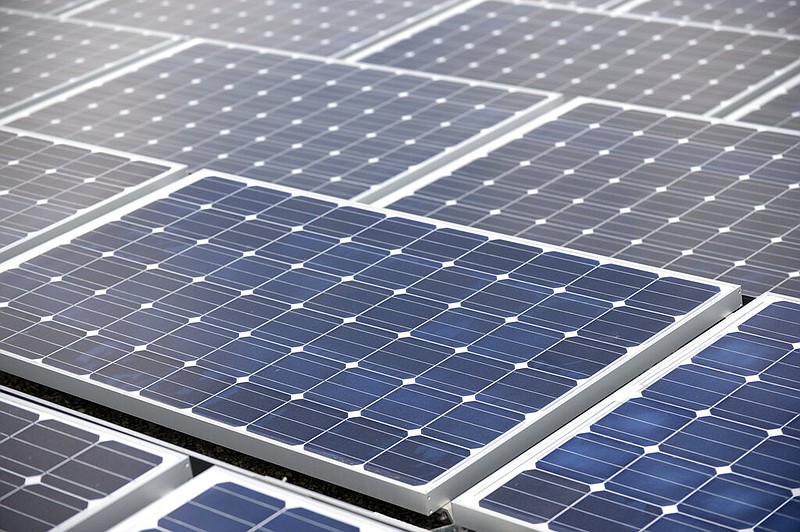An agricultural research facility in Fayetteville affiliated with the University of Arkansas has entered into an agreement with a solar energy provider designed to offset most of its electricity costs.
The University of Arkansas System Division of Agriculture has signed a 25-year solar service agreement with Entegrity Partners, which will provide enough solar energy to handle more than 80% of the electricity consumed at the Milo J. Shult Agricultural Research and Extension Center -- the primary agricultural research base for the Arkansas Agricultural Experiment Station -- annually, according to a University of Arkansas Cooperative Extension Service news release Friday.
The facility -- which gets its electricity from Ozark Electric Cooperative -- will receive an offset on its energy bill equal to the amount of energy produced at a solar array that was brought online May 11. The solar array already has two other clients that benefit from the electricity it produces, Division of Agriculture Project Program Manager Dan Street said.
The arrangement is expected to lower the research facility's electric bill by tens of thousands of dollars a year. The 3.6-megawatt solar array is spread out across 1.75 acres near Hope in Hempstead County and produces 3,692 kilowatts of electricity, according to the extension service news release.
Entegrity Partners built and maintains the solar array and sells electricity produced there to other customers.
Most of the solar array was built last year but "lingering supply chain issues" meant certain electrical parts could not be sourced until the first few months of 2023, according to Entegrity Partners, which said the array was built specifically for the Division of Agriculture after a solar services agreement was signed. The land the array was built on was not purchased specifically for the university, as it houses a few other solar panel arrays for other customers.
Street said he is not aware of any other similar contracts connecting a solar farm to a research center, or current plans for other such contracts in the future. He said other research sites may utilize equipment such as irrigation pumps powered by solar panels.
The Shult facility is the only Division of Agriculture research and extension center in Fayetteville, though there is a smaller research site nearby, the Savoy Research Complex.
The Division of Agriculture operates five research and extension centers, six research stations and four other research locations.
